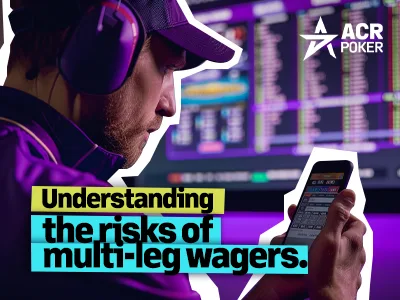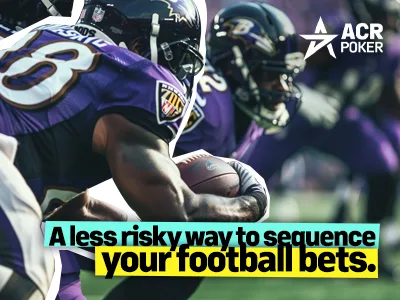Master crypto bankroll management for high-stakes poker. Learn allocation models, volatility handling, hot/cold wallet splits, and risk protocols professional players use.
Tag: Risk Management
What’s Your Risk Style? Choosing Futures Bets That Fit You
Understanding one’s personal risk tolerance is crucial when engaging in betting, particularly with futures bets. These bets often require a solid grasp of both the probabilities involved and one’s comfort level with potential loss. As individuals contemplate their betting strategies, it’s essential to align their risk tolerance with the types of bets they choose. This
Professional Reset: Advanced Tilt Management for Serious Bettors
For any serious bettor, emotional discipline is the foundation of long-term success. While most understand the basic concept of “going on tilt,” professionals approach emotional regulation with a level of structure and analysis that separates them from the masses. This is not about suppressing frustration after a bad beat; it is about building a systematic
The Middle Ground: Medium Risk/Reward Totals Strategies
Navigating the world of sports betting often involves a delicate balance between risk and potential reward. For many, the high-stakes, longshot parlays are too volatile, while the heavily favored, low-odds wagers offer minimal returns. This is where totals, or Over/Under bets, present a compelling alternative. Specifically, by focusing on a middle-ground approach, bettors can develop
Are There Low-Risk Conditional Bets?
The concept of low-risk conditional bets is relative, as all forms of wagering inherently involve some level of financial exposure. However, within the spectrum of multi-leg betting options, certain conditional bet structures can be considered lower risk when compared to alternatives like parlays. Risk in this context is measured by the potential for total stake
How to Use an If-Bet: A Safer NFL Strategy
An If-Bet is a specific type of conditional bet that allows an NFL bettor to link two or more wagers in a dependent sequence. The second bet in the sequence only receives action if the first bet wins. This structure provides a strategic method to pursue multiple outcomes without risking the entire stake on every
A Simple NFL Sunday Strategy Using If-Bets
The structure of the NFL Sunday schedule, with its distinct early and late afternoon game windows, creates natural opportunities for implementing If-Bet strategies. This scheduling allows bettors to use results from completed early games to determine whether to proceed with wagers on later games. The conditional bet structure of an If-Bet aligns perfectly with this
The Two-Team Parlay: A Beginner’s Bet
In the expansive realm of sports wagering, the Two-Team Parlay is often seen as the gateway for new bettors exploring the high-reward structure of combined bets. A parlay, in its fundamental form, is a single wager that links two or more individual selections (known as “legs”) into one ticket. For the bet to be successful,
Track Your Parlays for Smarter Betting
The sports wagering environment often presents opportunities for bettors to seek high payouts on relatively small stakes, a dynamic encapsulated by the Parlay Bets wager. A parlay is constructed by combining two or more individual wagers, known as “legs,” into a single bet. The primary allure is the exponential increase in potential winnings as the
Chasing Losses with Conditional Bets?
The experience of a losing streak in sports betting can trigger a powerful and dangerous impulse: the urge to “chase losses.” This is a behavioral pitfall where a bettor deviates from their established strategy and increases the size or complexity of their wagers in a desperate attempt to recoup prior losses quickly. One type of
Your Risk Tolerance & Point Spread Bets
Risk tolerance represents the degree of variability in outcomes that an individual is willing to withstand in their point spread bets. It encompasses both financial capacity and psychological comfort with potential losses. For point spread bets, this means understanding how much of one’s bankroll can be risked per wager without causing emotional distress or financial
When to Walk Away from an Underdog Bet
Underdog bets often attract bettors with the promise of high payouts, but knowing when to walk away is just as important as identifying value opportunities. A well-timed exit can protect a bankroll and ensure long-term betting success. Understanding the signs that it may be time to step back allows bettors to make smarter, more disciplined












